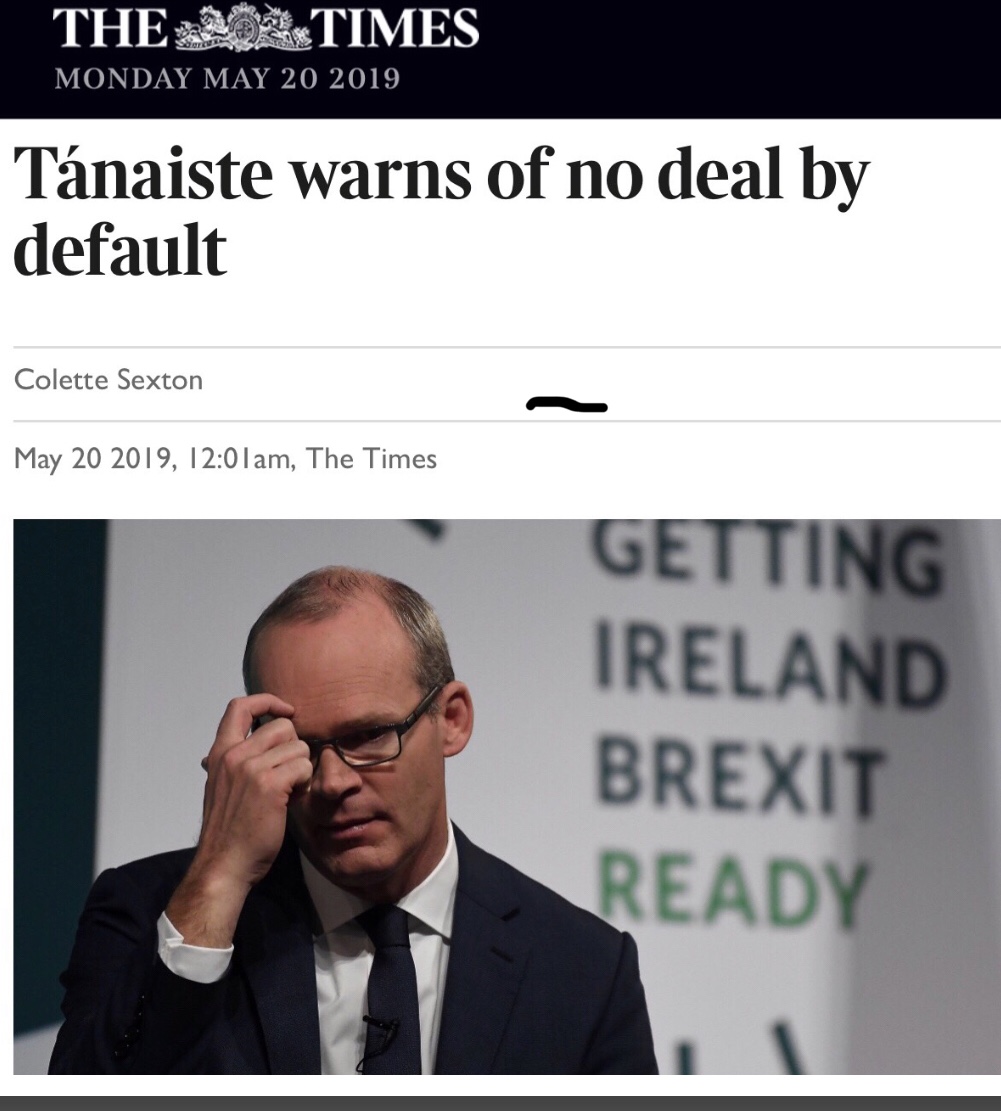Tánaiste warns of no deal by default
The EU will not renegotiate the Brexit withdrawal deal, regardless of who the UK’s next prime minister is, Simon Coveney told Britain yesterday.
In a scathing assessment of the political situation in the UK, the tánaiste warned that Britain could trigger a no deal “by default” if it failed to “get its act together”.

He described political events at Westminster as extraordinary and questioned the logic of politicians who believed that a change of leader would deliver changes to the agreement struck by Theresa May. “The EU has said very clearly the withdrawal agreement has been negotiated over two and a half years, it was agreed with the British government and cabinet and it’s not up for renegotiation, even if there is a new British prime minister,” he said on This Week on RTÉ Radio 1.
He said the UK should not assume that another extension would be granted by the EU if a deal were not agreed by the deadline, October 31. He said the EU was set for big challenges as a result of the European elections and would be likely to devote less focus to Brexit.
Noting the prospect of Mrs May offering pledges on technological solutions for the Irish border in her final attempt to get the withdrawal treaty through Westminster next month, Mr Coveney said he did not have an issue with that as long as it did not undermine the border backstop provisions within the withdrawal agreement.
“Mrs May offering pledges on technological solutions for the Irish border in her final attempt to get the withdrawal treaty through Westminster next month, Mr Coveney said he did not have an issue with that as long as it did not undermine the border backstop provisions within the withdrawal agreement”.
The tánaiste said that UK politicians who thought a new prime minister could strike a new deal did not understand the EU. “For the EU and Ireland this has always been about trying to protect the EU, its integrity, its single market, its customs union, its members and also trying to respect the decision of British people,” he said.
“For Britain in many ways it’s been about party politics and personalities and many people seem to think Britain would have got a much better deal if only they had a tougher prime minister. In my view that is a fundamental misunderstanding of how the European Union operates,” he added.
Mr Coveney was speaking as a British cabinet minister claimed yesterday that the Conservatives and Labour were just “half an inch apart” on the terms of a Brexit deal.
Rory Stewart, the UK international development secretary, said that despite the collapse last week of cross-party talks aimed at finding an agreed way forward, there was little that divided the two sides. He suggested that even if the Labour leadership was not prepared to support Mrs May’s deal when she brings it back to the Commons, other “moderate, sensible” Labour MPs may do so.
Mrs May has said she is preparing to make a “bold offer” to MPs in a final attempt to get her beleaguered deal through parliament and on to the statute book before she leaves office.
British ministers will begin discussions today on a package of measures to be included in the forthcoming Withdrawal Agreement Bill aimed at securing cross-party support. The weekly meeting of the British cabinet tomorrow will then consider plans for a series of “indicative votes” in the Commons to establish which proposals could command a majority in the House.
The bill, which is needed to ratify the deal with Brussels, is expected to include measures on protecting workers’ rights, an issue where agreement with Labour was said to have been close.
Writing in The Sunday Times, Mrs May said: “I still believe there is a majority in parliament to be won for leaving with a deal.
“When the Withdrawal Agreement Bill comes before MPs, it will represent a new, bold offer to MPs, with an improved package of measures that I believe can win new support.”
Mrs May has said she will bring the bill before MPs for its second reading vote in the first week of June after the short Whitsun recess.
Source: The Times
You must be logged in to post a comment.